When you know a person for a long time, you get a sense of how they communicate. You understand why they chose one word instead of another and what emotion that subtle shift in tone is giving away. Our parents often fall into this category. However, Reddit user SlenderSelkie recently ended up in a situation with her father that she just couldn’t wrap her head around. While visiting her home, he not only started criticizing its renovations for being “too weird,” but also tried to see if he could tear them down. And when he was confronted about it, he dropped a dubious line about his grandsons—the woman’s nephews.
RELATED:
This woman invited her dad for a visit, but his comments and actions made little sense

Image credits: rawpixel / freepik (not the actual photo)
She wasn’t sure if it was manipulation or a sign of cognitive decline
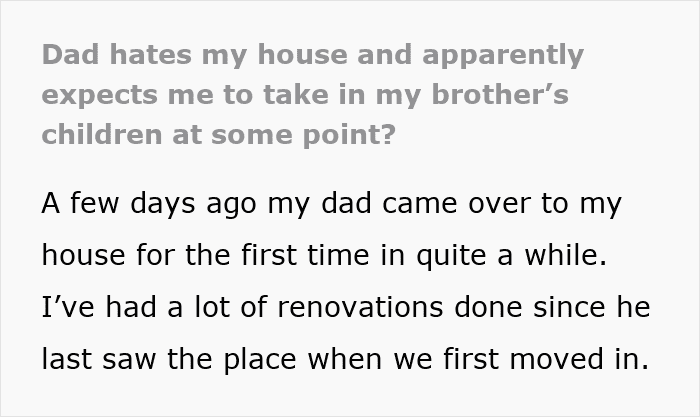
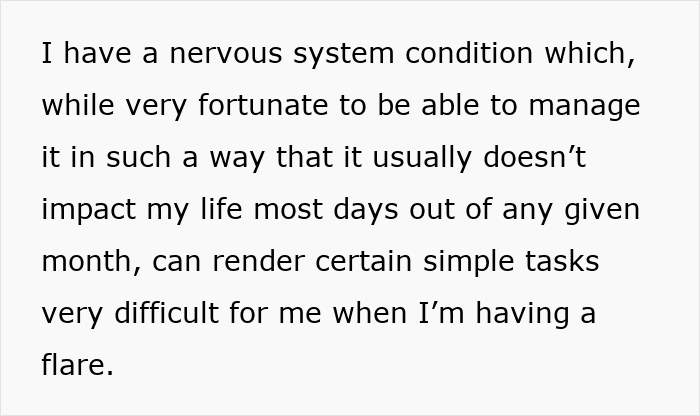
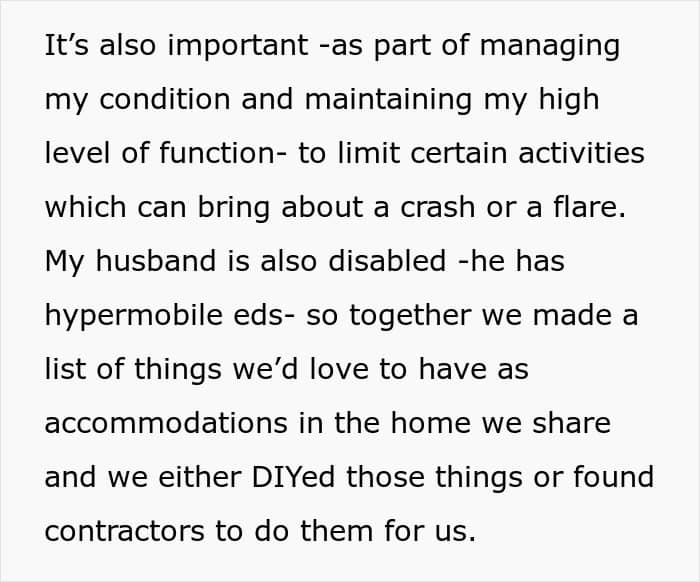


Image credits: freepik (not the actual photo)




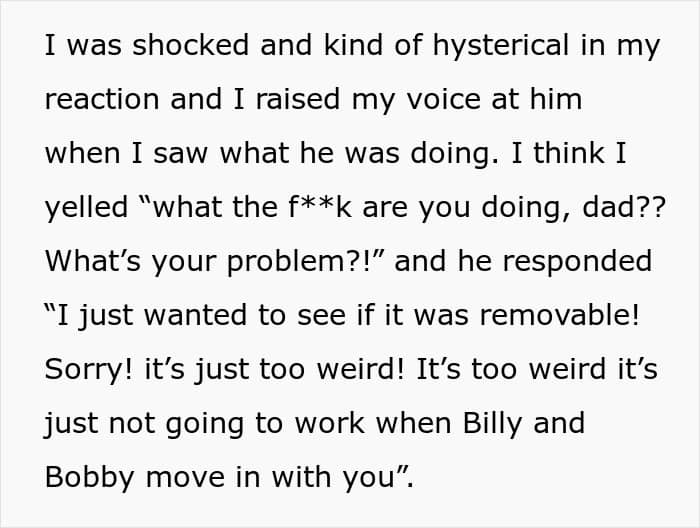

Image credits: gpointstudio / freepik (not the actual photo)
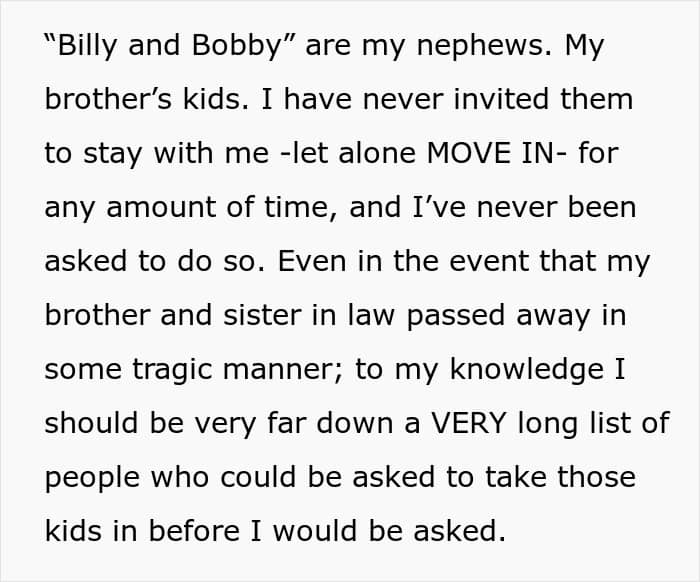





Image credits: freepik (not the actual photo)



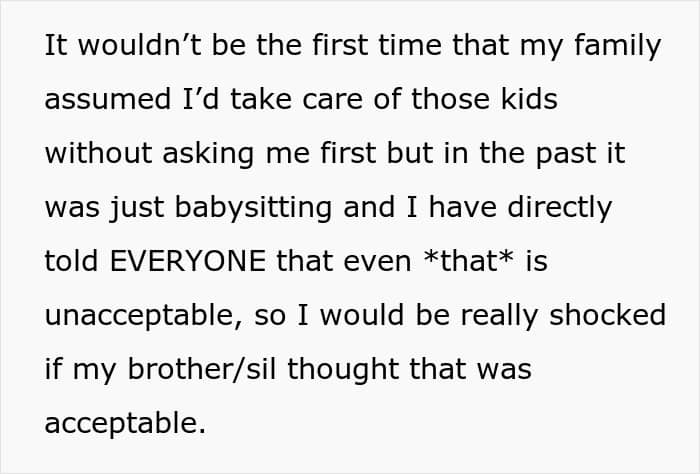

Image credits: SlenderSelkie
Parental disapproval doesn’t mean a lack of love

“From your vantage point, your parents’ overreactions and stubborn disapproval probably look unfounded and irrational. To be fair, some may be. What is almost certain, though, is that underneath those behaviors lies their zealous love for you,” says Ron Carucci, co-founder and managing partner at Navalent, which works with CEOs and executives pursuing transformational change.
Carucci is the author of To Be Honest: Lead with the Power of Truth, Justice and Purpose, and says that, “at some point, all parents fail to show that love in ways their children need. Trust me, as parents, we remember those moments too, with regret. But moments of poorly expressed love don’t mean that love isn’t there.”
So while negative comments about your house, for example, can really sting, the concern for its resale value might imply they come from a caring place. (Whether or not they’re warranted is another discussion, though.)
“The relationship between parents and children is a lifelong study of what is most important in human connections,” Carucci adds. “Through this relationship, we learn so much about how we relate to friends, colleagues, and life partners.”
“More than any other formative experience, this relationship shapes the best, and sometimes the worst, of who we become as adults. It’s messy, complicated, and sacred. And it deserves all the effort it takes to keep it strong, especially in the moments where that’s hard.”
As people reacted to the woman’s story, she provided them with more information on her dad and their argument
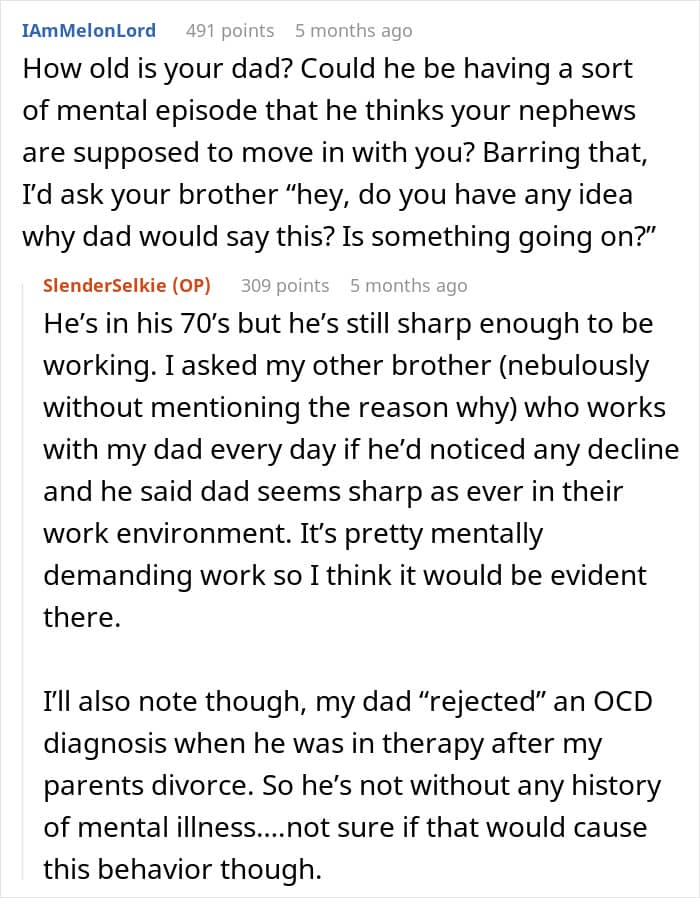
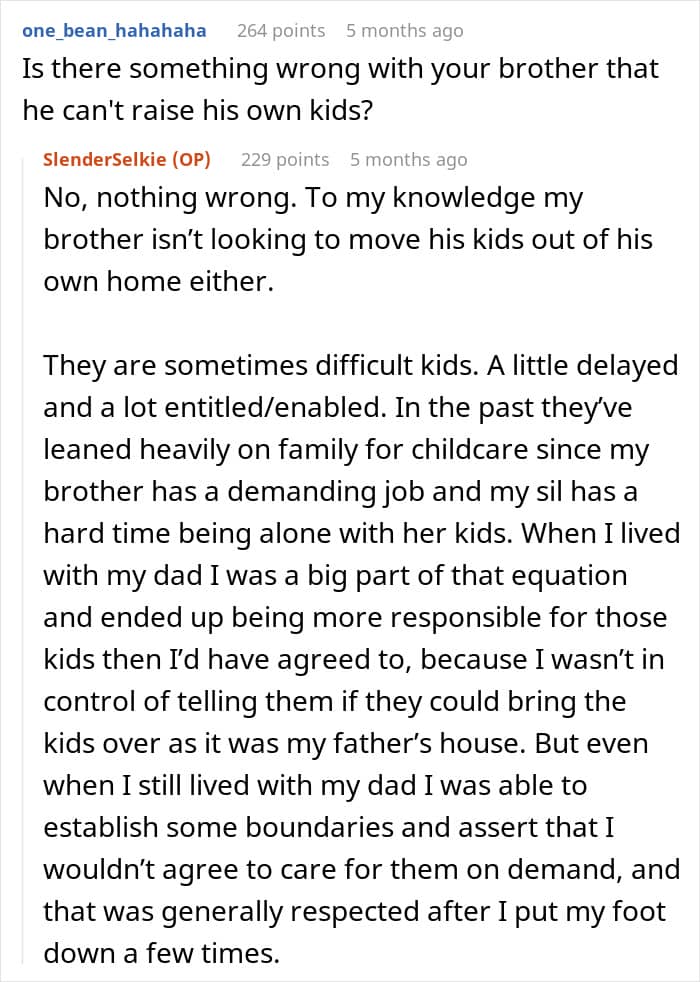

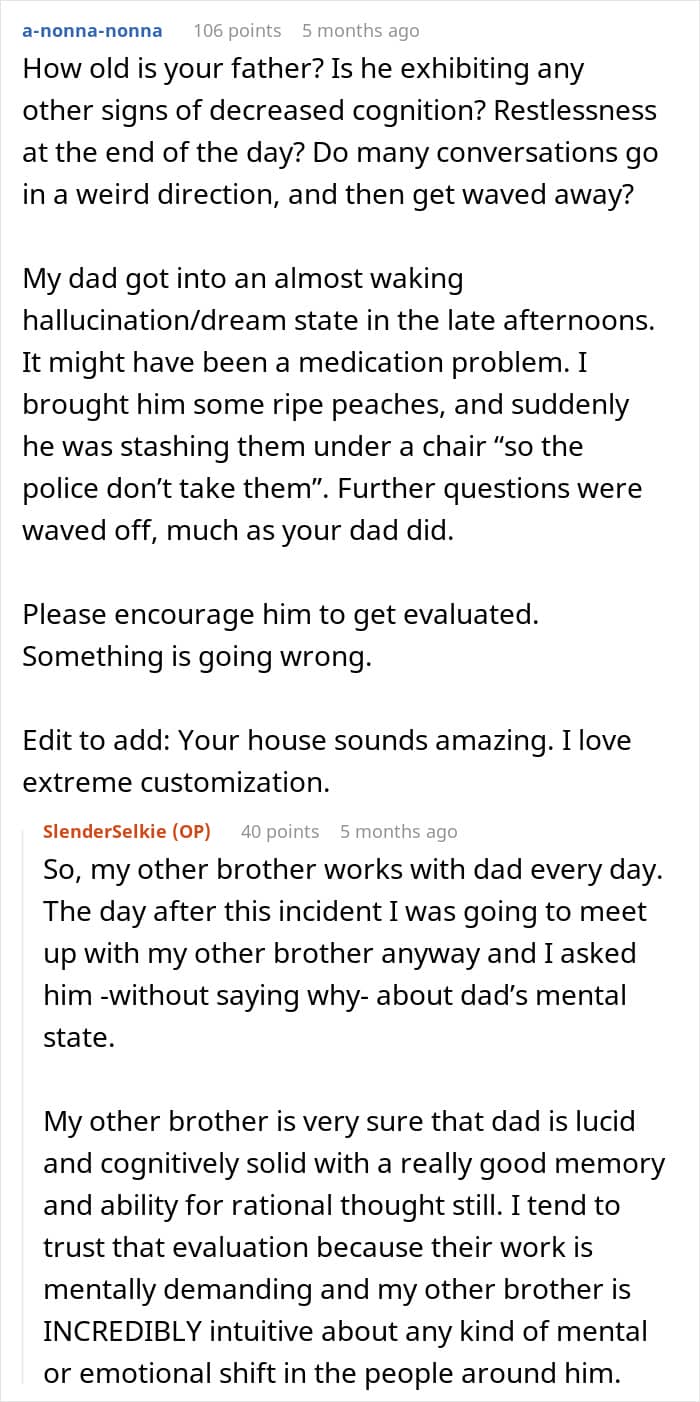
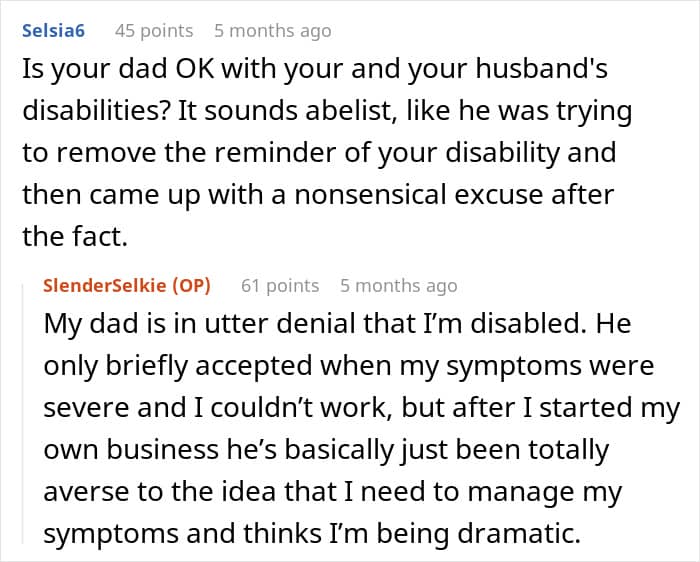
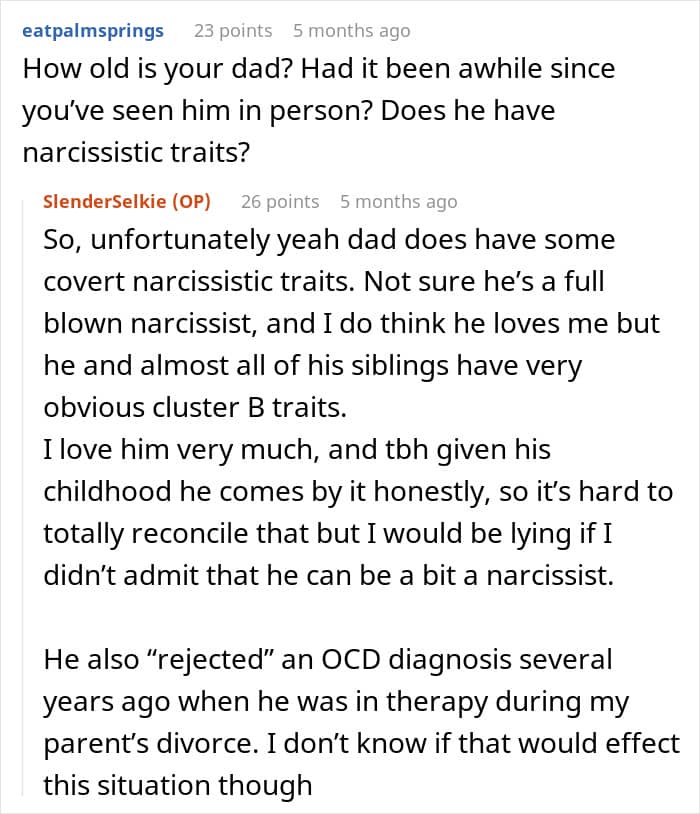

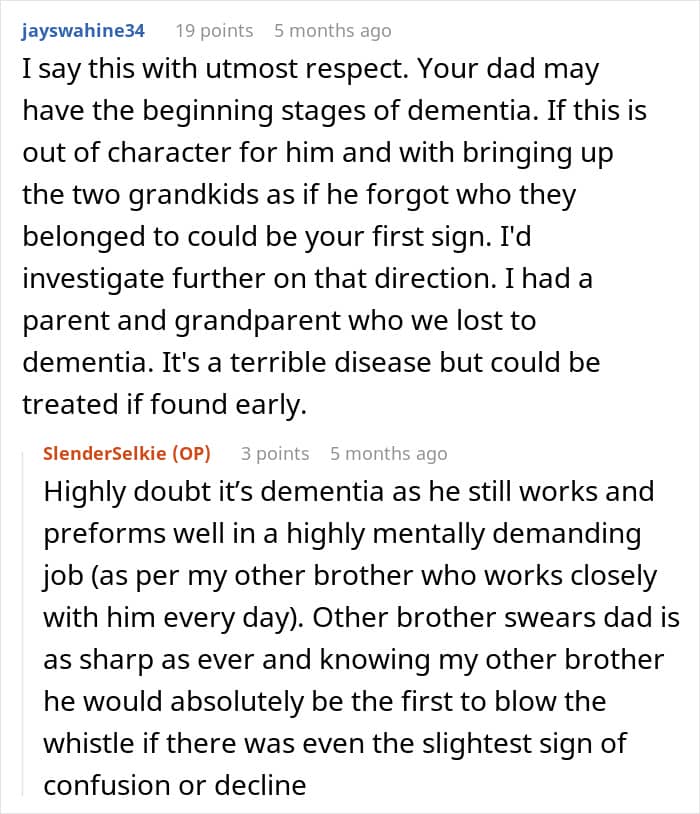



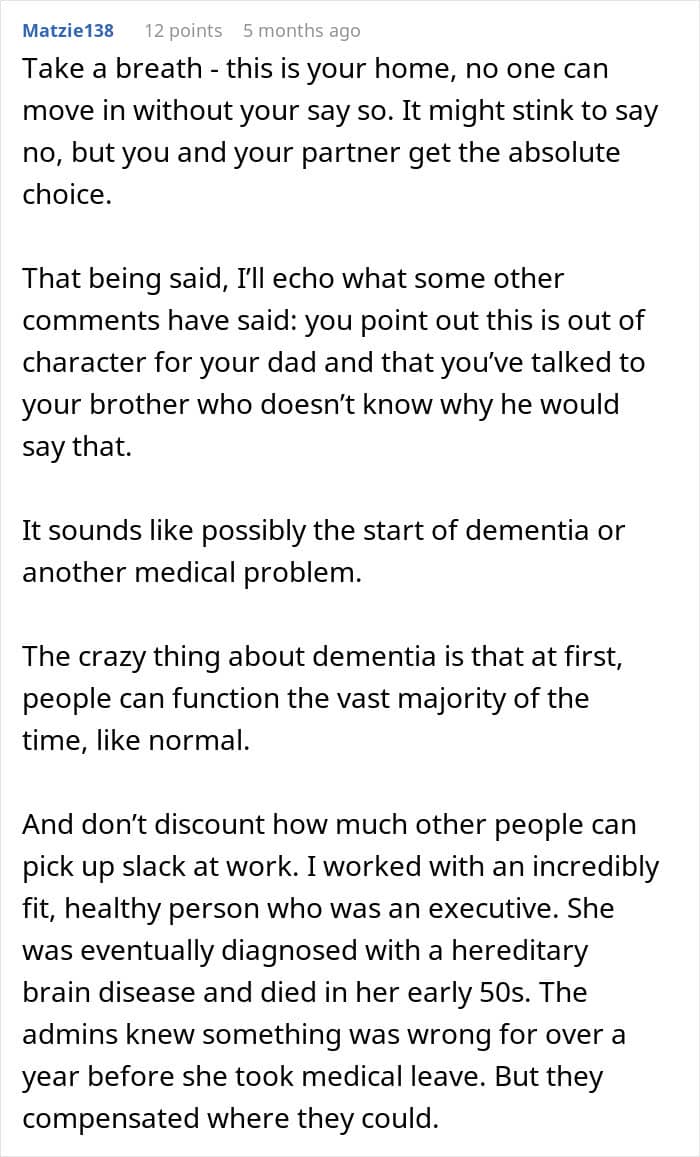
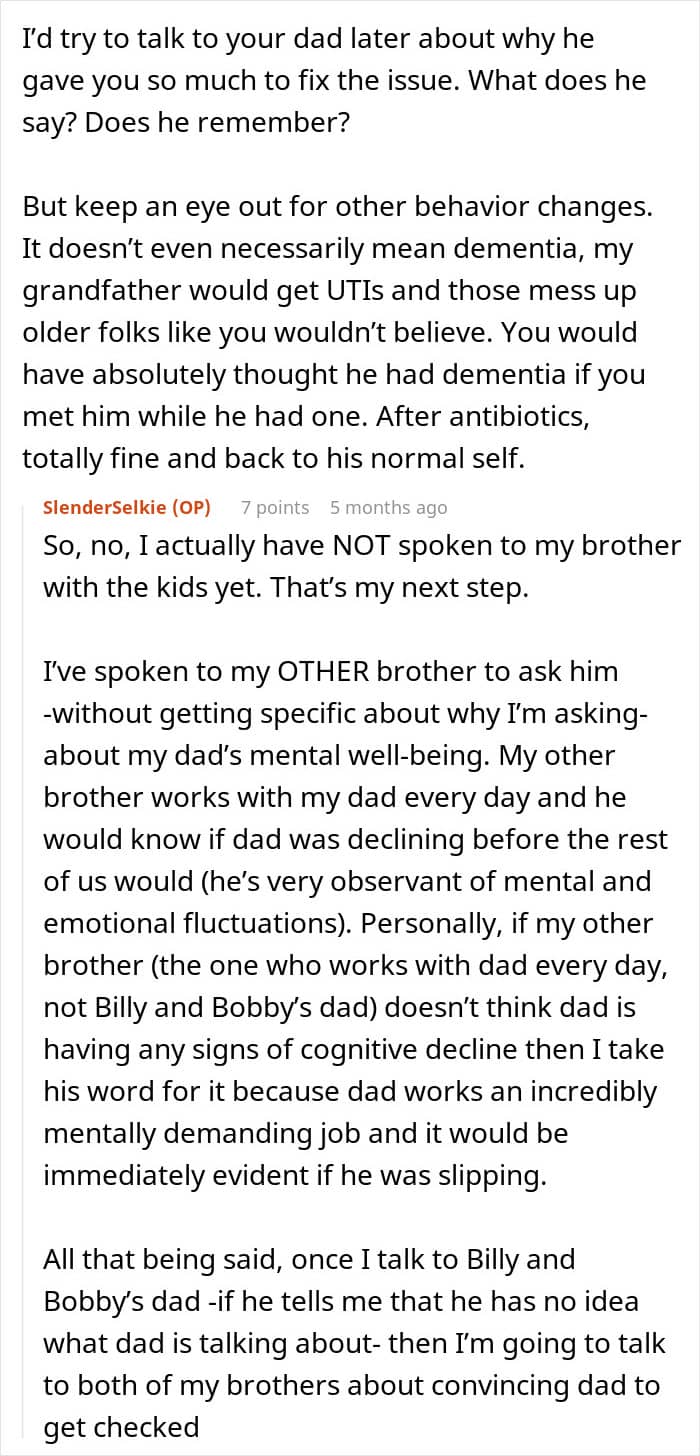
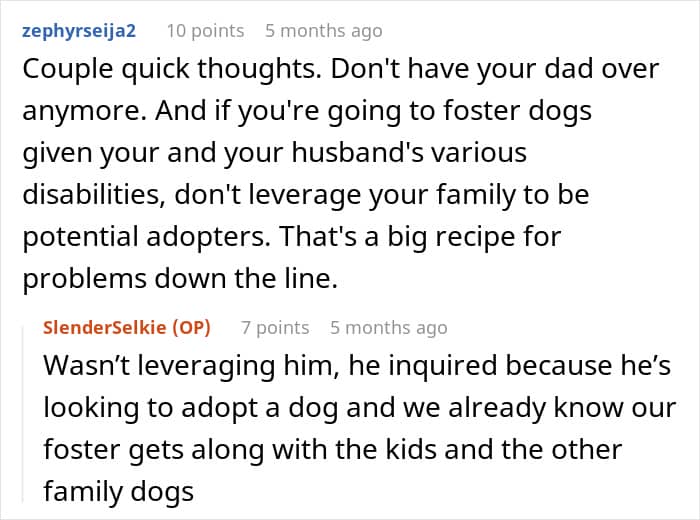



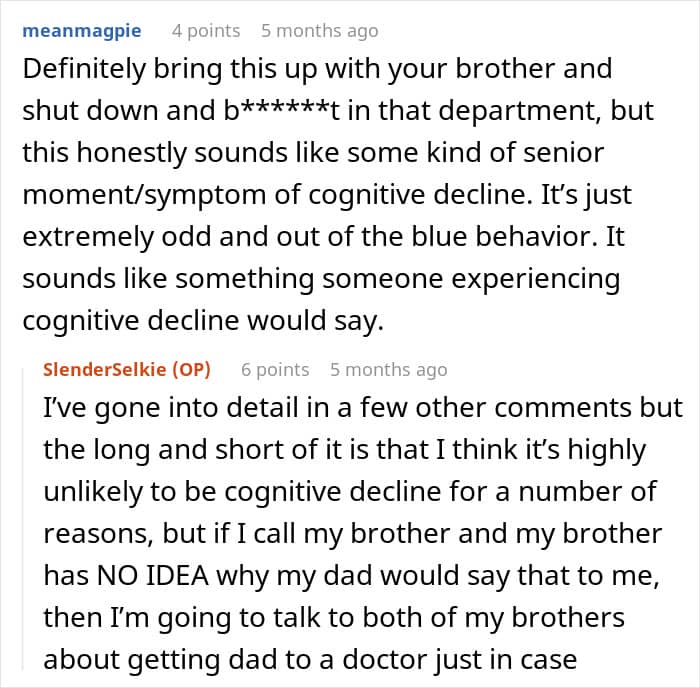
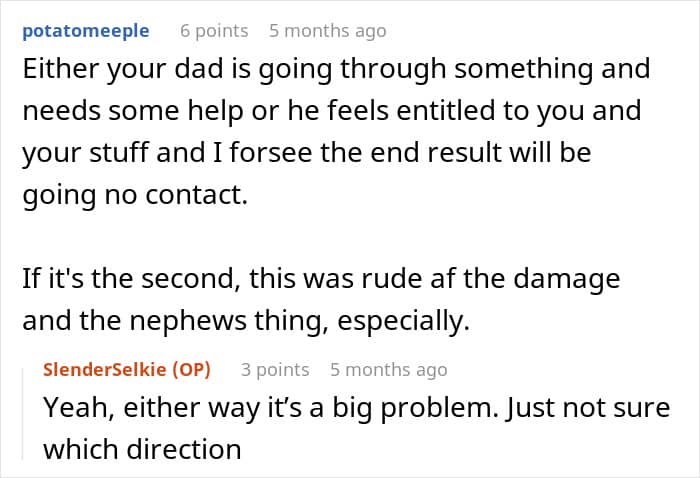


Eventually, the woman got in touch with her brother—the dad of the boys her own father had mentioned

Image credits: stockking / freepik (not the actual photo)


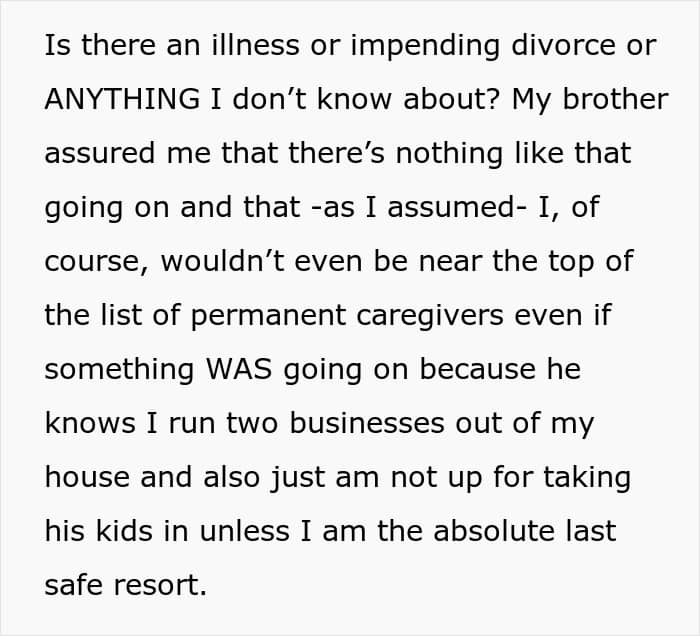

Image credits: freepik (not the actual photo)
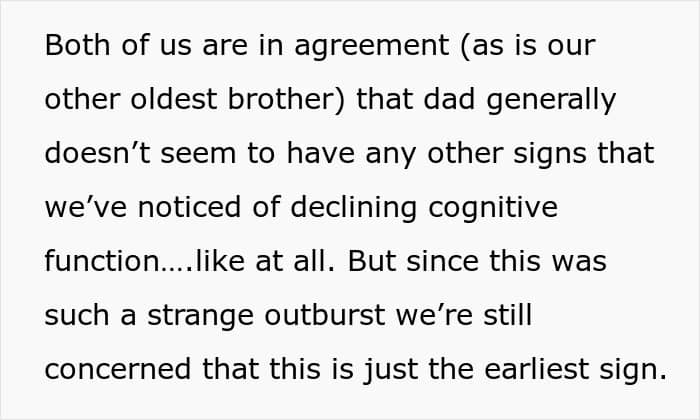

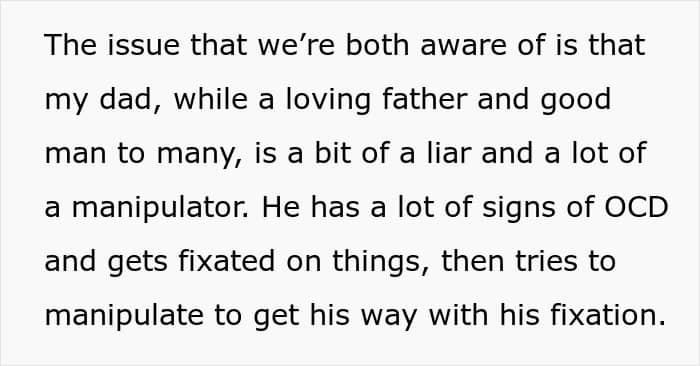


Image credits: freepik (not the actual photo)
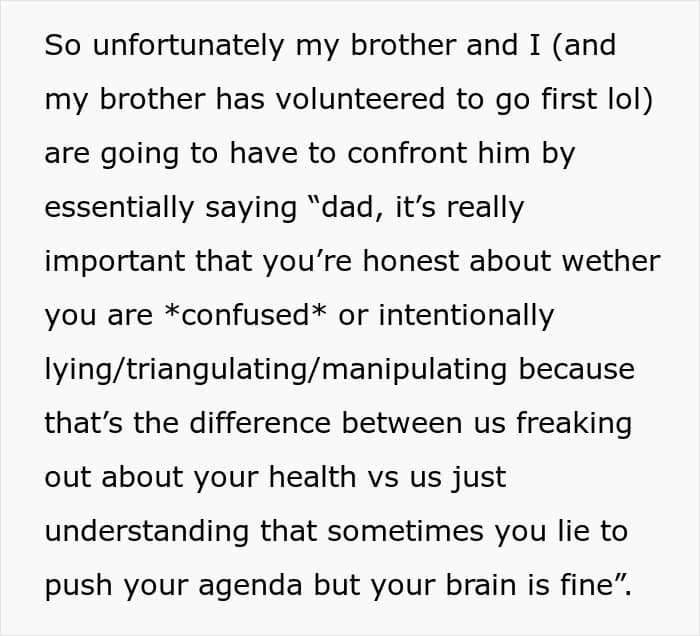


Image credits: SlenderSelkie
The woman’s concerns are understandable

Mild cognitive impairment (MCI) is the in-between stage between typical thinking and dementia. It may affect your judgment, like spotting a scam on the internet, or it could affect your ability to plan and remember appointments.
There are two types of MCI:
Amnestic MCI (aMCI): This type mostly affects memory. People might forget important information that they used to be able to remember.Non-amnestic MCI (naMCI): This type mostly affects thinking. You may have trouble with judgment, making decisions, or completing complex tasks.
MCI happens when parts of the brain that help with memory and thinking are damaged or undergo structural changes. These include your hippocampus, temporal lobes, parietal lobe, and other connected regions.
MCI may be an early stage of certain neurodegenerative conditions, such as:
Alzheimer’s diseaseFrontotemporal dementiaLewy body dementiaParkinson’s diseaseVascular dementia
Anyone can develop MCI, but you are more at risk if you:
Anyone can develop mild cognitive impairment. But you may be more at risk if you:
Are above age 65Have a biological family history of dementiaHave the APOE-ε4 (APOE4) gene variant (a gene that increases your risk of Alzheimer’s disease)
The following factors may also increase your risk:
Brain injuries or disorders, like traumatic brain injury and normal pressure hydrocephalusChronic conditions, like diabetes, COPD, and osteoarthritisHeart and blood vessel issues, like high blood pressure, high cholesterol, and strokeInfections, like urinary tract infections (UTIs) and HIVMental health conditions, like anxiety and depressionMetabolic and nutritional issues, like hypothyroidism, vitamin B12 deficiency, and dehydrationSleep conditions, like obstructive sleep apnea
It can also appear as a side effect of taking: antihistamines, antidepressants, blood pressure medications, antiseizure medications, benzodiazepines, muscle relaxants, and opiates.
However, it’s important to note that MCI looks different for each person and not all cases lead to dementia. According to research, about 2 in 10 people over age 65 with this condition will develop dementia within a year.